“We hope that students come out of our program feeling like they’re part of a community. Many of us feel inadequate or struggle in some way during graduate school—it can be a challenging time. I want to build a community that our students can always come back to for support,” says Elana Ehrlich, Ph.D., the co-director of the Bridges to the Doctorate Research Training Program (B2D) at Towson University (TU), in Towson, Maryland, alongside Michelle Snyder, Ph.D..
The TU B2D is one of several NIGMS-supported B2Ds, which are dedicated to developing a diverse pool of well-trained biomedical scientists who will transition from master’s degree programs to research-based doctoral degree programs. B2Ds partner with Ph.D.-granting institutions to help aid students in the master’s-to-Ph.D. transition. Students in all B2Ds earn a thesis-based master’s degree and receive training to design, conduct, and analyze experiments effectively. At the same time, these students learn how to build successful applications for doctoral programs, whether they apply to the B2D’s partner school or another Ph.D. program.
Since its launch in 2017, TU’s B2D has seen great success under the leadership of Drs. Ehrlich and Snyder. The program has helped increase the number of students from underrepresented groups in the master’s program in biological sciences at TU nearly fourfold since 2015. Additionally, 83 percent of trainees who applied to Ph.D. programs were accepted.
Endless Benefits
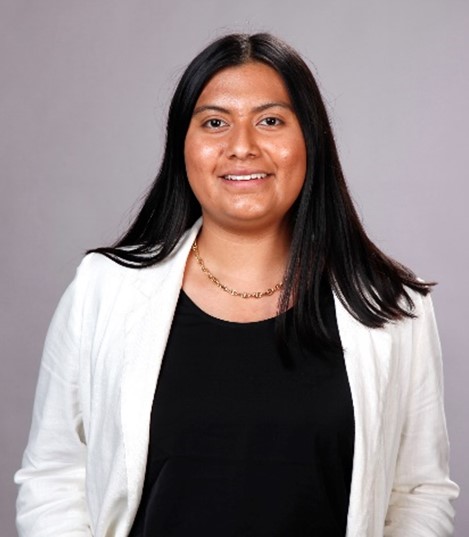
Cynthia Lascarez and Dayshia Kerney, two 2023 TU B2D graduates, were interested in science as kids but never knew there were options to study science other than becoming medical doctors. “It wasn’t until I participated in my first research lab experience that I was able to see this other side of science,” says Cynthia. She was excited because she had found a different career path that could still ultimately help people.
As a B2D student, Cynthia studied the impact of diet on cancer with her mentor, Petra Tsuji, Ph.D. Her project focused on benzo[a]pyrene, a chemical thought to cause cancer when it’s broken down in the body. Cynthia investigated whether a nutrient found in grains may inhibit the enzymes that break down benzo[a]pyrene, thereby reducing the risk of cancer.
Dayshia worked in the lab of John Weldon, Ph.D., on a project to understand how toxins, like those released by certain bacteria, cause disease. As part of the disease-causing process, toxins move within a cell from one organelle to another, and Dayshia studied how the enzyme furin acts as a chaperone to help these movements.
Working in a lab with a TU professor is only one of the many benefits of being a B2D student. The program also provides professional development training, such as how to hone scientific writing and presentation skills, how to apply to doctoral programs, and what attributes to look for in a potential research mentor. The help students receive as they prepare to apply for doctoral programs includes personal statement revisions, entrance exam test prep, and mock interviews with TU professors.
During the summer semesters, TU B2D students complete a rotation in a research lab at either Johns Hopkins University School of Medicine or the University of Maryland School of Medicine, the program’s two partner institutions in Baltimore, Maryland. Trainees also have the option to take classes at these and other local institutions to supplement the course catalog at TU.
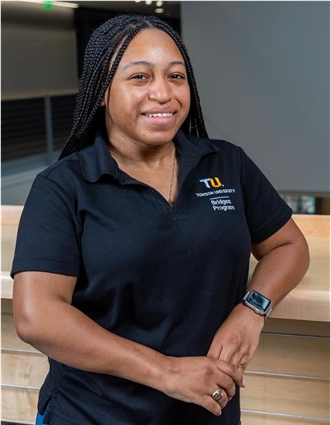
“Overall, B2D gave me opportunities that I wouldn’t have gotten otherwise,” says Dayshia. “Exposing underrepresented minority students like me to different career paths, labs, and environments is really an important focus, and its benefits are endless. There’s a need for diverse viewpoints and ideas in STEM because the more ideas there are, the more discoveries can be made.”
In August 2023, both graduates began Ph.D. training programs: Cynthia in the biomedical sciences program at Pennsylvania State University School of Medicine in Hershey; and Dayshia at the Uniformed Services University in Bethesda, Maryland, in the emerging infectious disease section.
Building a Strong Community
When the COVID-19 pandemic caused universities to close and research to come to a halt, TU students, including those in B2D, found themselves isolated in their homes. “Slowly, we started to get back into the lab, but we still felt lonely. That’s when the family aspect of B2D became even more important,” says Jade Alvarez, a 2021 graduate of the program.
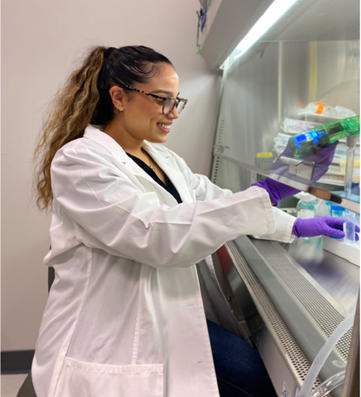
During that time, TU B2D directors continued to host virtual cohort meetings and fostered an environment where students felt comfortable sharing with their peers. “Dr. Ehrlich started asking the students to share one good thing and one bad thing that happened that week. It’s become a tradition now, but it started during the pandemic so that we could work through what we were struggling with at the time. Mental health support was a main focus during the first year of the pandemic,” Jade explains. The pandemic made for a unique B2D experience, but Jade says it strengthened their bonds as a cohort.
As of fall 2023, Jade is a third-year Ph.D. student at Johns Hopkins University School of Medicine and works in the laboratory of Richard Roden, Ph.D., studying the role of human papillomavirus (HPV) in cervical cancer. Given the positive impact that her B2D experience has had on her career, Jade is eager to get involved in local mentoring programs for undergraduate students. She looks forward to talking to them about what a career in science can look like and giving them the opportunity to visit the lab. “It may be surprising to hear, but I didn’t know what a Ph.D. even was or how to earn it,” she says. “I was never exposed to it in my community, so it’s important for students like me to see that they can get to where I am and that programs like B2D can open doors for them.”
TU’s B2D is supported by the Bridges to the Doctorate Research Training Program through grant T32GM1446694.
Other Posts You May Like
- Understanding Signaling Through Cell Membranes: Q&A With Chrystal Starbird
- Bil Clemons: Following Scientific Curiosity
- From Science Fair to Science Lab: Q&A With Chelsey Spriggs
- Haley Bridgewater: Taking the Sting Out of Vaccines
- Investigating the Inner Workings of Ion Channels With Sudha Chakrapani


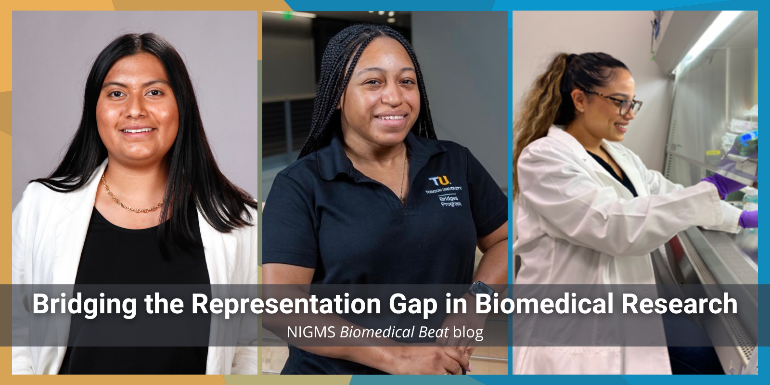



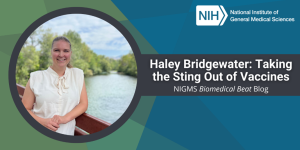
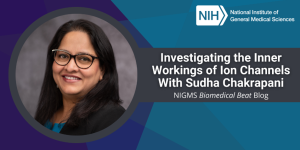
I think this is a wonderful opportunity for these future science researchers. They will have an opportunity to work with biomedical science scholars, publish, and gain a lot of research skills and experience.
I wish I had this opportunity 20 years ago.
God is so GOOD…
Pay attention, listen, be respectful, work hard, and get good nutrition exercise and sleep to reduce your stress.
Congratulations to all of you! God Bless You All!!!